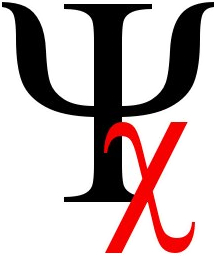The Coming A.I.pocalypse
A Letter from the Managing Editor
To hear the musky Elons and hawkish Stevens tell it, we’re on the cusp of an artificial-intelligence–induced apocalypse. Sure, you’ve got your tense flows in deeply networked neurals, your pcyched system of experts, your goggled searches, your blinged microsloths, your deeply blues, your sons of Wat, your going alphas, your nets in the sky, your ultra trons, your people of interest, and all that—but so what? That’s not an existential threat; it’s an electronic incarnation of a reasonably intelligent, moderately skilled, labor-saving drudge—or as we call them here in the office, interns.
|
|
 Joshua Fishman, 1967, “Bilingualism with and without diglossia; Diglossia with and without bilingualism”, Journal of Social Issues, 23.
Joshua Fishman, 1967, “Bilingualism with and without diglossia; Diglossia with and without bilingualism”, Journal of Social Issues, 23.
Chiasmus of the Month
July 2016
|
|
|
|
|
We humans, we’ve got our semicolons & en dashes, our languages and Language, and our wifi-less post–Cold War era nuclear weapons. While The Bomb™ may seem like a bit of overkill, it’s good to keep it in our back pocket, just in case things really get out of hand. (I mean, it’s not like I’m advocating deploying weaponized essence of Donald Trump—though now that I’ve mentioned it, the Pentagon is probably on it. Sigh.) Language and languages, of course, are what set us apart from lesser beings (except when they don’t—pesky biologists and their perpetual snooping!), and they will continue to confound any artificial and many natural intelligences. German strong definite articles and Pirahã phonology alone would be enough to fry their little circuits. Honestly, just the rules for proper use of en dashes and semicolons are more than most AIs (and many humans) could hope to handle.
No, my fellow linguists, the real threat of artificial intelligence is not to humankind, but rather more narrowly, to linguistkind. For hundreds of years, A.I. practitioners and groupies have been predicting that A.I. is right around the corner—and if not this corner, the next one—and the grammarians laughed at them, and the philologists laughed at them, and the linguists laughed at them. But now they’ve got some pretty hot stuff and some pretty slick demos, and it’s going to attract the young’uns to their field instead of ours.
Now I know the computational linguists are going to start getting misty-eyed, singing “Kumbayah” and asking why we can’t all just get along—and the answer is, Shut up nerd! That’s why! We tolerate you calling yourselves linguists, but that’s all we can stomach. You lily-livered nitwits should never have let those computer dweebs belittle and embarrass you—and by extension the rest of us—with that “Parsey McParseface” malarkey. (The rest of you: Oh, it’s real. Go look it up. We’ll wait.)
Back to the matter at hand, we need to stand up to those a.i.ggheads. I have a plan to make linguistics great again. Let me tell you, I’m a really smart guy. One of the key problems today is that the humanities are such a disgrace. Good people don’t go into linguistics. Why aren’t we smart? We used to be brilliant. The concept of artificial intelligence was created by and for the computer scientists in order to make linguistics graduate schools non-competitive. Our field is in serious trouble. We don’t have victories anymore. We used to have victories, but we don’t have them. When was the last time anybody saw us beating, let’s say computer science, in recruiting grad students? I beat computer science all the time. All the time. I will build great linguistics departments—and nobody builds linguistics departments better than me, believe me—and I’ll build them very inexpensively. I will build a great, great linguistics department on every campus, and I will make Comp Sci pay for those departments. Mark my words.
Oh, crap, the weaponized Trump is leaking.

